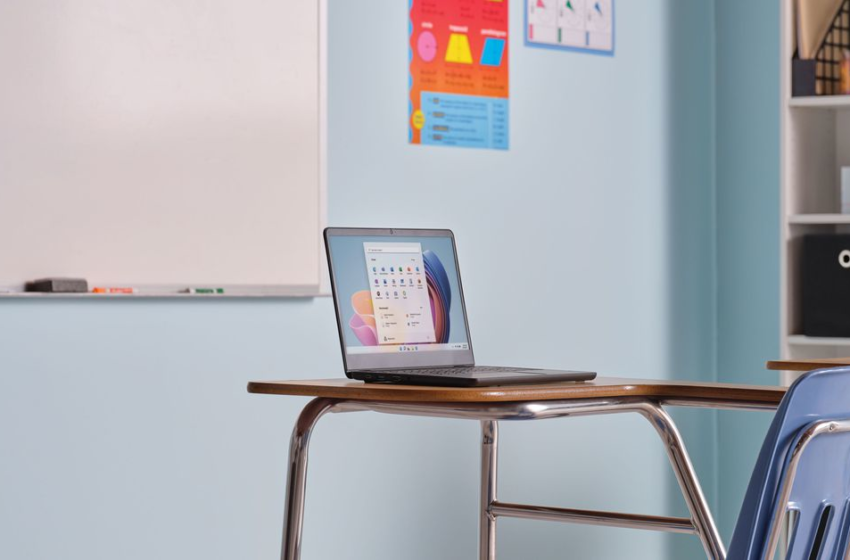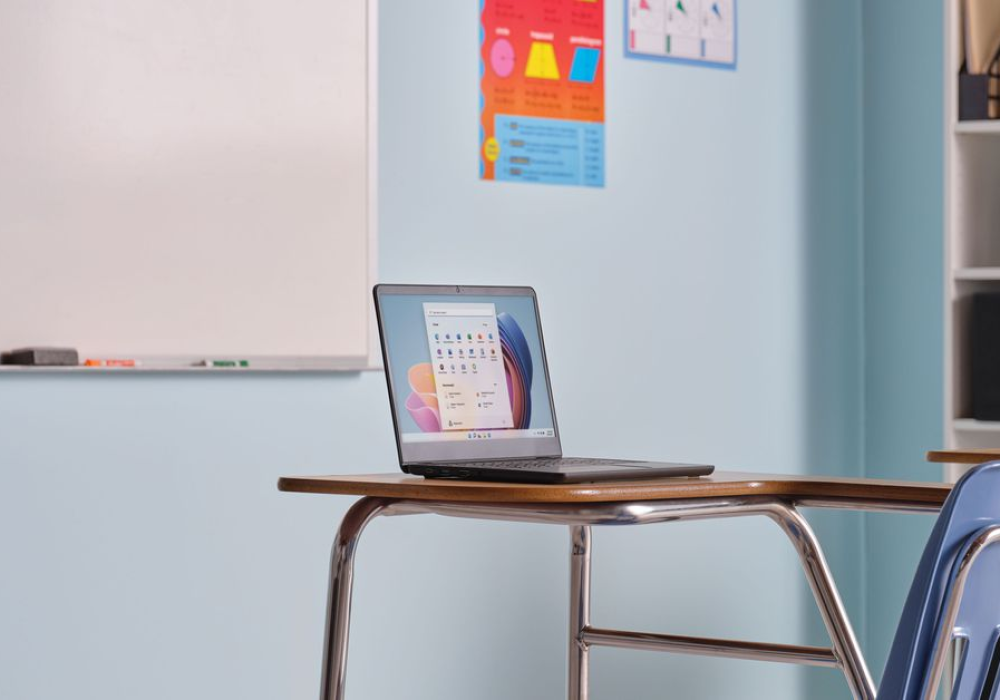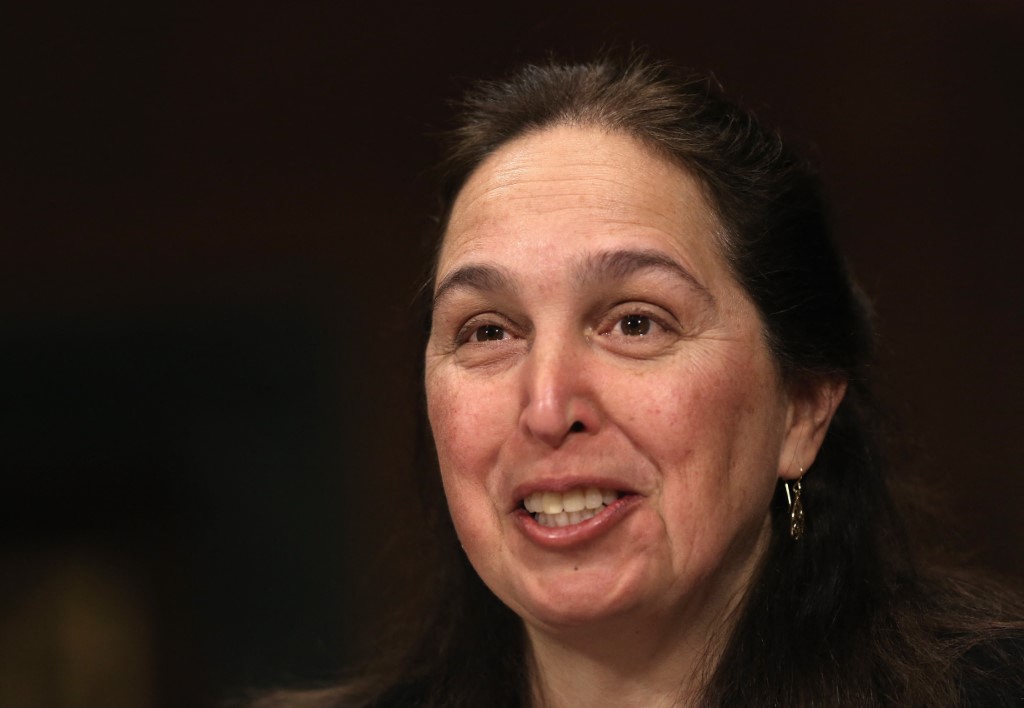Microsoft has created a new edition of Windows 11 designed for students and schools. Windows 11 SE will ship exclusively on low-cost laptops that are built for K-8 classrooms, and it marks another attempt by Microsoft to take on Google’s range of Chromebooks and their popularity in US schools.
Microsoft has struggled to understand why schools and students have flocked to Chromebooks. The company tried an S Mode previously that essentially locked Windows 10 down to apps from the Microsoft Store. The restriction was more of an irritation for end users and schools, as there weren’t enough apps available in the Microsoft Store for it to make sense.
Windows 11 SE takes a different approach to a Windows edition for schools, and it’s a similar direction where Microsoft was originally heading with Windows 10X before its cancelation. Windows 11 SE will only be available on new low-cost devices and only for schools and education customers. While Windows 11 SE is, naturally, optimized for Microsoft Edge, Office, and Microsoft’s cloud-based services, it’s not restricted to just Microsoft apps.
“Windows 11 SE also supports third-party apps, including Zoom and Chrome, because we want to give schools the choice to use what works best for them,” says Paige Johnson, head of Microsoft’s education marketing. IT admins will be in charge of what apps get installed, and devices can be managed to silently update outside of class time.
Most of the Windows 11 SE changes are fairly minor, though. Microsoft has spent the past 18 months talking to teachers and students to get feedback on its efforts to date on low-cost Windows laptops. That feedback has led to apps always launching in fullscreen mode on Windows 11 SE, and Microsoft has removed the multiple Snap Layouts in this edition in favor of a single mode that lets you place apps side by side.
The new Widgets section of Windows 11 has also been removed in SE, as Microsoft found it’s distracting in a classroom environment. Microsoft Edge will also be configured to accept Chrome extensions, which is turned off by default on Windows 11. Many schools in the US rely on Chrome extensions as part of their Chrome OS usage, so this change is a clear recognition of that. Windows 11 SE also backs up documents to OneDrive by default, with offline support to make it easier for students to use these Windows 11 SE laptops beyond just the classroom.
Windows 11 SE will also ship with a new colorful Bloom wallpaper by default and some changes to the way apps are bundled. While you might experience having two different versions of OneNote or Teams in Windows 11, Microsoft is cleaning this up in Windows 11 SE so only a single version is installed.
Windows 11 SE will only be available on low-cost laptops that are sold to schools. Acer, Asus, Dell, Dynabook, Fujitsu, HP, JK-IP, Lenovo, and Positivo are all creating Windows 11 SE laptops in the coming months. Microsoft even has its own $249 Surface Laptop SE, which sets the stage for Windows 11 SE. The base model ships with an Intel Celeron processor, 4GB of RAM, 64GB of eMMC storage, and an 11.6-inch (1366 x 768) display. You can read all about the Surface Laptop SE right here.
The Surface Laptop SE specs demonstrate the type of low-cost devices that will ship with Windows 11 SE. Microsoft tells us it has made a lot of performance improvements tuned towards 4GB of RAM and 64GB of storage devices, so hopefully Windows 11 SE holds up well on these low-cost laptops.
Windows 11 SE, which according to Microsoft isn’t intended to be short for anything, is also a big part of the company’s overall efforts to compete with Chrome OS. Microsoft has often overlooked what makes Chrome OS so easy to use and manage for IT admins and schools, and Windows 11 SE laptops will now be ready to talk to Microsoft Intune straight away for setup purposes.
That makes it easier for IT admins to provision these devices with a more simplified backend management console for education. Microsoft is also bundling apps like Teams, Office, OneNote, Minecraft for Education, and Flipgrid in Windows 11 SE so IT admins don’t have to install them separately. This should make it easier for students to simply open up a Windows 11 SE laptop, type their login information, and instantly get access to their apps and cloud documents.
Microsoft is expecting Windows 11 SE laptops to arrive in education channels later this year and into 2022, just as the education buying season begins.



:no_upscale()/cdn.vox-cdn.com/uploads/chorus_asset/file/22998135/Win11SE_start.png)
:no_upscale()/cdn.vox-cdn.com/uploads/chorus_asset/file/22998136/w11SE_snap1.png)
:no_upscale()/cdn.vox-cdn.com/uploads/chorus_asset/file/22998137/COMR_Feature_02_RGB.jpg)



